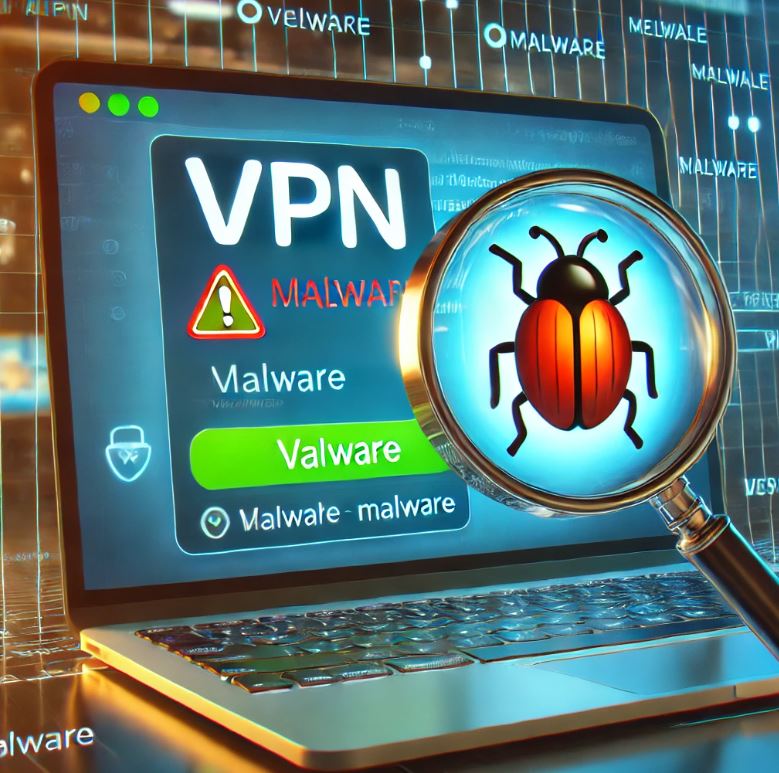As cyber threats evolve, so do the tactics of malicious actors. Recently, a new wave of attacks has emerged, targeting Chinese users searching for VPN products, AI tools, and adult content. These attacks, orchestrated by a threat cluster known as Void Arachne, aim to distribute a dangerous backdoor malware called Winos, potentially leading to full system compromise.
Key Takeaways
- A new threat cluster, Void Arachne, is targeting Chinese users with malware-infected VPNs.
- The malware, Winos, can lead to a complete system compromise.
- Threat actors are using Telegram channels and SEO poisoning to spread the malicious software.
This is why you need a well known service, such as NordVPN, to back you up. Check them out and get their best deal right now.
The Rising Threat of Malware-Infected VPNs
Void Arachne and the Winos Malware
Void Arachne, identified by Trend Micro in early April 2024, has been at the forefront of these recent cyberattacks. This group has been using various methods to distribute the Winos malware, which can compromise an entire system. The primary targets of this campaign are Chinese-speaking users seeking VPN solutions like LetsVPN and QuickVPN, along with other software such as simplified Chinese versions of Google Chrome and language packs.
Methods of Distribution
To effectively deliver the Winos malware, Void Arachne has employed multiple techniques. They have created MSI files, which appear to be legitimate software installers but secretly bundle the malware. These files are promoted as useful tools, enticing users to download and install them.
Moreover, Void Arachne has developed nudifiers and deepfake pornography-generating AI software, which they distribute using the same tactics. By infiltrating popular platforms and search engine results, they ensure their malicious files reach a broad audience.
How Void Arachne Spreads Malware
Telegram Channels and SEO Poisoning
One of the primary methods Void Arachne uses to spread their malware is through Telegram channels. They create channels specifically designed to share malicious installer files, making them easily accessible to unsuspecting users.
Another significant strategy is SEO poisoning. The attackers host malware on websites and generate numerous articles and blog posts linking back to these sites. This technique tricks search engines like Google into ranking these malicious sites higher on search engine results pages (SERPs), effectively serving malware to users searching for related keywords.
Recent Developments in Cybersecurity
As of today, June 20, 2024, cybersecurity experts are closely monitoring the activities of Void Arachne. The discovery of this threat cluster highlights the ongoing need for vigilance and advanced security measures to protect users from sophisticated malware attacks.
Trend Micro continues to update its findings, providing crucial insights into the tactics and methods employed by these cybercriminals. Their research underscores the importance of relying on reputable cybersecurity sources and staying informed about emerging threats.
Top Experts and Entities in the Field
Trend Micro
Trend Micro has been at the forefront of uncovering and analyzing the activities of Void Arachne. Their detailed reports and continuous monitoring provide valuable information to both users and cybersecurity professionals.
Cybersecurity Ventures
Cybersecurity Ventures, a leading research firm, regularly publishes updates on the latest trends and threats in the cybersecurity landscape. Their insights and reports are essential for understanding the broader context of these attacks and the measures needed to counter them.
Conclusion
The rise of malware-infected VPNs, particularly those distributed by the Void Arachne threat cluster, poses a significant risk to users. By understanding the methods and tactics used by these cybercriminals, individuals can take proactive steps to protect their systems and personal information. Staying informed through reliable sources and using trusted software are crucial in this ongoing battle against cyber threats.
Authorship
This article is authored by VPNSauce, an expert in the field of VPN technology and online privacy for many years. For more insights and updates, visit VPNSauce.com.


